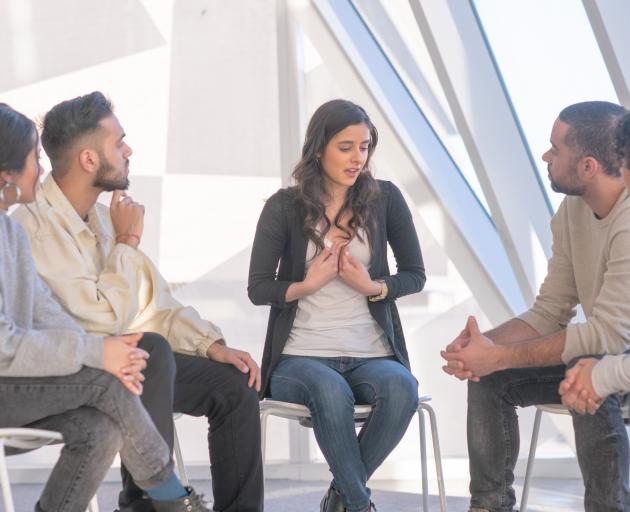

While reading and researching my two previous columns ("Remembering to look after yourself", The Mix, April 13 and "Understanding who we are", The Mix, April 27), I kept coming across a lot of writing based on the feeling and concept of "vulnerability".
I'd previously read a little about it and listened to world renowned authority Dr Brene Brown talk about it.
However, apart from knowing that I experience the feeling, I hadn't really given it much thought.
We commonly interpret "vulnerability" as being weak. It is something to be avoided. Being vulnerable implies we are in a position where we can be hurt, either emotionally or physically. Let's face it, that is not usually something we willingly put our hands up for. Our systems are wired to avoid anything that represents danger, it is how we survive. Most of us would rather run screaming into the hills than purposefully put ourselves in a position of vulnerability. It's not a natural response to stand and face whatever it is that makes us feel threatened.
But embracing being vulnerable is a necessary strength to develop if we want to be emotionally resilient. Standing to face the source of the pain takes immense courage. The conscious decision to remain calm during periods of upheaval, purposefully walk towards and then work through the issues can be daunting. Ultimately, it can be rewarding and potentially life changing, for the better, if we can embrace being vulnerable.
We don't get a choice about facing things that make us feel vulnerable, we live in a vulnerable world - the loss of a job or a loved one, the break-up of a relationship, a health crisis, rejection of a work proposal, a job application - the list is endless. While we often have little control over the things that result in vulnerability, we do have control over how we respond to it.
One of the most common responses to feeling vulnerable is anger. We strike out at the person/situation that threatens us. Anger, while being a perfectly valid emotion, can become problematic if we get struck in it. Long-standing anger can lead us to blame others, the weather, the moon cycles or whatever, for what is happening. Blame is a way to discharge pain and discomfort, but it also places a barrier between us and our emotions. It prevents us from feeling and dealing with the vulnerability and the causes of it.
Another common response is to numb the feeling with food, alcohol, drugs, exercise or anything else that keeps us from our real feelings.
If we avoid being vulnerable we don't grow and we don't learn how to deal with vulnerability next time we encounter it. And we will encounter it. Research has shown that while we admire vulnerability in others, we are less comfortable showing it ourselves. Possibly it's easier to admire it as a quality when we're not the one under the pump!
Being vulnerable isn't about wearing your heart on your sleeve and telling all and sundry every detail of your latest misfortune (no matter what reality television and social media might suggest!).
Firstly, it is about being open and honest with ourselves. It's about taking a deep breath, standing in the face of adversity and not running for the hills. It's about acknowledging, naming, feeling and processing the emotions that come up for us.
Then, once we can do that, it becomes about being honest with those whom we trust and love, those who support us. Letting them know what's happening and seeking help or a friendly ear - whatever it is we need. That step can increase the feeling of vulnerability because we can never really know how others will respond. Being vulnerable, especially in our most intimate relationships, can be scary. But holding back can be detrimental to communication and many a relationship has taken a hit because of the inability to be honest and vulnerable.
Being vulnerable with those most important to us enhances communication, it creates connection and it's opposite, disconnection, can be the most devastating occurrence for us.
Neurobiologically we are wired for connection: it gives our lives meaning and purpose. In order to connect, we have to allow ourselves "to be seen, really seen" as Brene Brown says. We need to be vulnerable, imperfect and courageous, with large doses of compassion.
At the heart of vulnerability is authenticity, the honest expression of who we are and living to our core values. Vulnerability requires us to have the courage to be imperfect and the compassion to be kind to ourselves and others.
Embracing vulnerability is not comfortable, but it is necessary if we are to live connected, resilient lives.
Jan Aitken is a Dunedin-based life coach.
For more go to www.fitforlifecoaches.co.nz.
Twitter:@jan-aitken











